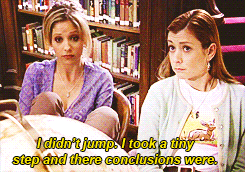Hey, scientists are people, too. They're just as vulnerable to bias and brain farts as the next guy or gal. But sometimes the boneheadery is so profound you really kind of wonder how they manage to tie their shoes in the morning.
Case in point, Tim Hunt.
Tim Hunt is a Nobel Prize winning biochemist. Who proclaimed to a room full of female science journalists that science labs should be segregated because:
Three things happen when they are in the lab: You fall in love with them, they fall in love with you, and when you criticize them they cry.

Let's put this statement under the... ahem... microscope, shall we?
You fall in love with them, they fall in love with you...
As regular readers will know, before I started writing science books for kids, I was an actual female scientist. And I vividly remember those days in the lab, wearing a lab coat flecked with stains of mysterious origin, the aroma of growth medium and carcinogenic chemicals infusing the air, staring at data in the wee hours of the night, trying to figure out why a reaction that had worked perfectly well the last three hundred times had mysteriously stopped working... Such a heady combination for romance, it's a wonder I managed to get any work done.
But putting all that aside, I rather object to the implication that women in science (or any other field) have nothing better to do that moon over the menfolk all day long - and the implication that we are so at the mercy of our hormones, we'll sacrifice everything we've worked for to get to the nearest source of testosterone.
And if we look at it from the opposite side, there's something here that's even more disturbing - the implication that women are to blame for men's reactions to them, that men just can't control themselves in our presence. At attitude that not only does a disservice to men, but underlies the rape culture that's a serious threat to girls and women.

I also have to wonder where, in Hunt's ideal segregated lab scenario, gay male scientists will be allowed to work.
When you criticize them, they cry...
First of all, crying is good for you. Crying is a sign that your physical and emotional stresses have built up to the point where your body can't store them anymore. Tears are the release valve on the pressure cooker, and science is ten kinds of pressure. But assuming scientists of any gender are doing the crying, they're not doing it in the middle of the lab. That's what bathrooms are for.
What's more interesting, again, are the underlying implications here. Is Hunt implying that crying is a thing only women do? Because that's patently untrue. Or are female scientists being excessively criticized compared to male scientists?
Yeah. That last one.
I've sat with male colleagues and been excluded from the conversation. One of my friends was frequently complemented on her appearance rather than her work. Another was told that women aren't smart enough for genetics and she should go into nursing instead. One ended up quitting her job because she couldn't handle the unrelenting misogyny.
 And that's just me and my female friends. Studies show that graduating classes in university engineering programs are now 20% women. But only 9.7% of working engineers are female. When asked why they left their field, many women cite the attitudes of their male coworkers.
And that's just me and my female friends. Studies show that graduating classes in university engineering programs are now 20% women. But only 9.7% of working engineers are female. When asked why they left their field, many women cite the attitudes of their male coworkers.
Right now, Tim Hunt is the face of the problem, but he is the tiny visible tip of a massive submerged iceberg - a slow, persistent, pervasive discrimination that prevents women (and especially women who aren't white) from reaching their potential.
Our society faces enormous challenges, challenges that only science and engineering can solve, and we need diverse minds with diverse approaches working on these problems. We need young girls to know that their skills and ideas are just as valuable as those of boys. And we need boys to grow up, get smart, and fling open the doors of the clubhouse.
If you can't adapt, you can always resign.
Tim Hunt did.
Check the responses of other female scientists here, here, or at the Twitter hashtag #distractinglysexy
For more on women in engineering, check out my book, Amazing Feats of Civil Engineering.
What do think about the Tim Hunt affair (see what I did there)? Have you observed these kinds of attitudes in your workplace or experienced them yourself? How can we change the story for women in science and engineering?
5 comments:
There's actually a follow-up to Tim Hunt's comments, in an interview in The Guardian newspaper at http://www.theguardian.com/science/2015/jun/13/tim-hunt-hung-out-to-dry-interview-mary-collins . Apparently he was asked to speak about women in science at a conference in Korea, and the comments were a joke in the middle of his talk. He's mortified at how they've gone viral. His students and colleagues and wife (a professor herself) have gone on the record as saying that Hunt is a very supportive influence to female and male scientists and students. He just made a bonehead joke.
This is another take on what Tim Hunt said by a science journalist who was at the conference https://storify.com/deborahblum/tim-hunt-and-his-jokes-about-women-scientists
I saw that. I do wonder about it, though. Would it have occurred to him to make that joke if he wasn't holding on to outdated attitudes in some way? And while I totally agree that it's unfair to punish one person for a pervasive problem, I hope that the whole mess shines light on the issue, and maybe even results in change.
Claiming that comments people object to were meant as a joke is a common form of refusing to take responsibility for one's words. It's a defense that's now transparent to most people--especially people who have been the butt of such "jokes" for centuries. Like women. Like people of color. Like anyone the speaker thinks he can get away with "joking" about and then claim he's been misunderstood. People in positions of prominence and power are--and should be held--responsible for understanding the audience to which they're speaking, and the way their words will be taken. It's not "just a bonehead joke." Would Hunt, invited to speak at a luncheon given by, say, male persons of color who were scientists and science journalists, have made a racist joke about their presence in science? And if he had, would you still say it was "just" a joke?
Hunt is upset because he was criticized publicly. He's not used to that. He's used to being the Nobel Prize-winner, the great scientist before whom others fall silent. He's used to saying whatever he wants, to whomever he wants, and expecting all the adjustment to be on the other side. Speaking to a male audience, that same "joke" may have been used before, to laughter and applause...here, he assumed women would react the same way as men-like-him. He said to one of the attendees afterward that though he meant what he said as a joke, it really was his opinion that women in science labs were a distraction. Not as a joke. Really his opinion.
I question the logic of "it's unfair to punish one person for a pervasive problem." First, the entire legal system is based on punishing the ones who get caught, even when many doing the same thing (from jaywalking to murder) are not caught and thus not punished. If you decide not to punish a school vandal or a car thief because vandalism of schools and theft of cars is a pervasive problem, then...it becomes even safer to destroy property and steal. Second, Hunt is not being punished for all the other instances of insulting speech towards women. He's being punished for his own behavior. As an invited speaker, when it was his responsibility to understand his audience and those who invited him, he chose to stand there and insult them (and by extension other women scientists not in segregated labs, and women who were training to be scientists, and students who have considered going into science.) He said it; he did it; it's his behavior being discussed.
EMoon, I completely agree with you that Hunt should face the consequences for what he did - it was inexcusable. What I meant was that we shouldn't stop there - the consequences (and the necessary changes) need to be broadly applied, because this is a widespread problem. Thanks for reading, and for sharing your thoughts.
Post a Comment